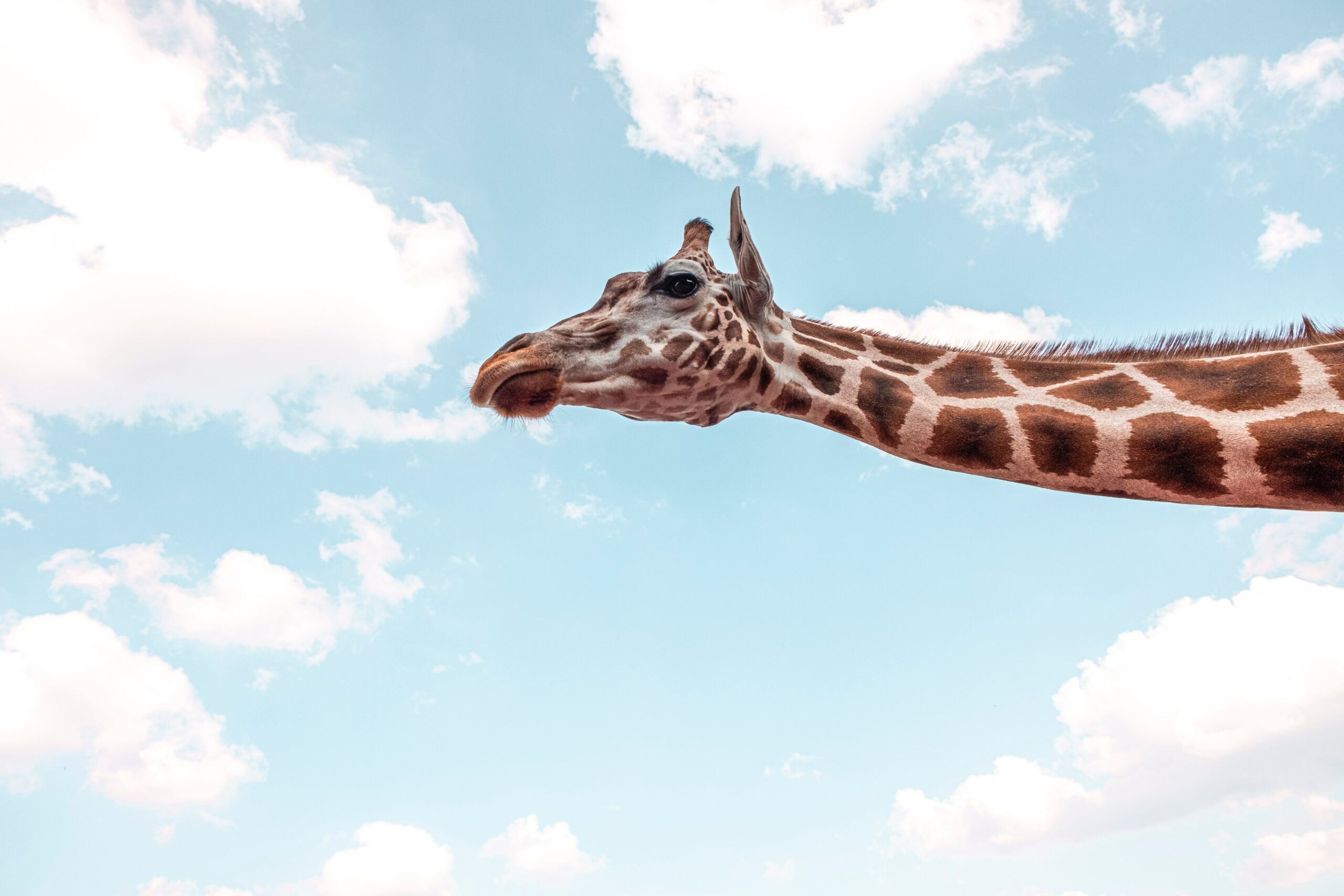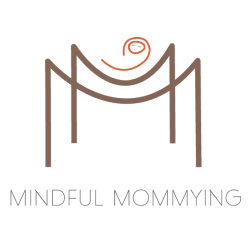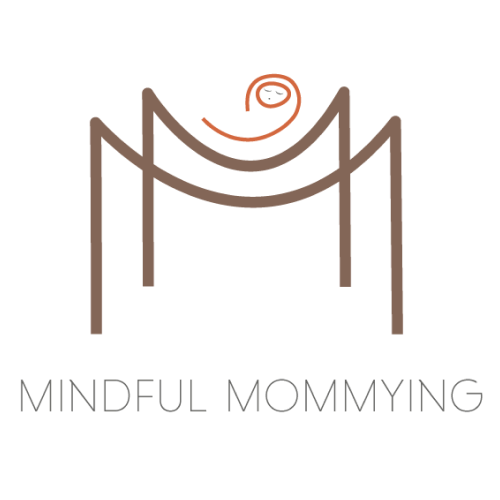
Giraffe-Like Mindfulness
- September 21, 2021
- by
- Rachel
Or How to Be Like Gerald.
The best advice I have found that manages to work for both mindfulness and parenting comes not from a Tibetan Buddhist or an enlightened psychologist. It comes from a children’s book written by Giles Andreae and Guy Parker-Rees called Giraffes Can’t Dance. I had never heard of this book until LA received it as a gift for having the bravery to be born.
Online sleuthing determined that the authors of this colourful volume are British, it was first published in 1999, and its MRSP was $6.99. The British part is obvious from the text. “Clot” is not a word you hear in the US outside of the hospital setting. God save the queen, because these fine representatives of their land packed a lot into a book that cost less than 7 US dollars.
In brief, this board book narrates the story of a giraffe named Gerald who is embarrassed—bullied by the other jungle animals—because he can’t dance. Apparently every other animal can—and apparently there are no other giraffes to back poor Gerald’s play. Instead, he slinks off, meets a cricket who convinces him that he just has to find the right music, and voila, Gerald dances like no other, earning the admiration of his previous critics.
There’s a lot to be said about this book, about being the gangly, awkward one who doesn’t fit in (Hello! Me!). It has a lovely message about self-acceptance and focusing on what you love instead of what everyone else is doing, encapsulated in Gerald’s final exclamation:
“We all can dance,” he said, “when we find music that we love.”
Because nothing is perfect, it should be noted that Africa is a giant continent, and the animals at this jungle dance are not actually found in every part of the continent. Indeed, giraffes don’t inhabit jungles. They inhabit the woodlands and plains areas. I know this, because I spent a significant chunk of time living in an area of Africa with no lions or giraffes. Snakes, certainly, but they are not invited to Gerald’s jungle dance.
The particularities of geography and zoology notwithstanding, what keeps me loving this book despite endless readings is how tuned into the concept of mindfulness it seems to be. When the cricket tells Gerald to listen to the wind in the trees for inspiration, he utters these brilliant words:
“everything makes music if you really want it to…”
That, in a nutshell, encapsulates so much of mindfulness practice. You stand where you are. You notice all the tiny details that you blithely ignore at any other point in time. The blades of grass suddenly seem greener. The snow is more textured. The brick on the building is lighter. And the multiple layers of sound that surround you fill your entire being with the present just as it is. Every second becomes relevant, filled with meaning, because you choose to pay attention.
In the moments when I manage to become mindful, I experience something similar to what Gerald experiences: I get in touch with myself. Sometimes, I even manage to accept myself. And there is generally a great deal of joy in that brief pause.
Similarly, Gerald also has a lot to say about parenting in a similar vein. There is actually a concept Pamela Druckerman calls “Le Pause” in her book Bringing Up Bebe. Le Pause is what Druckerman describes as the French sleep method, wherein a parent hears a child cry out in the night but does not immediately run to their side. Instead, the parent waits to see if the child is in need or just talking in their sleep.
To be clear, I don’t hold much with sweeping generalizations about entire cultures. Not all French mothers follow one method any more than all Canadian mothers do. Additionally, it could very well be that the mothers Druckerman knew were fortunate to have babies who slept easily. If anyone tries to tell you that there is a singular method to getting a child to sleep, especially if they are selling you something, run away. As the mommy of a child who did not sleep through the night for the entirety of his first year, I can affirm in retrospect that, despite my endless guilt and self-flagellation, it wasn’t about me at all. LA just wasn’t that sort of baby.
Sleep training aside, the pausing has been crucial in dealing with the anxiety that I feel about caring for a child. Are you a parent if you haven’t worried that you will make some devastating mistake and ruin his entire life? My need to soothe his anxiety would compel me to rush to his side too quickly; I probably even woke him up by accident at times. My response wasn’t about his needs; it was about mine. It was about the triggers that a crying child produced inside of me. It was me projecting my fears onto him: fears of abandoning him, of depriving him of connection, of failing as a parent.
Now that he’s a bit older, I’ve come to realise that this pause is also important in other areas of parenting. He struggles with a toy. Do I swoop in and make it work or do I take a moment, pause, and let him see he could figure it out for himself? He attempts something questionable, like climbing onto the sofa. My instinct might be to quickly stop his climb, take him to the safety of the floor. But that isn’t going to teach him anything in the long term. Instead, I have to pause, move to a position where I can catch him if he falls but allow him to try it on his own. If this methodology sounds familiar, it’s probably because it’s emphasized in educational philosophies like Montessori and RIE. It’s also key to childhood development, since as William Stixrud points out in The Self Driven Child, kids who have healthy control over their lives are more successful as adults. They are capable of making wiser decisions based on knowing themselves and not needing the voice of someone else to guide them all the time.
This makes me wonder, as I tend to do, if Gerald may have been a baby giraffe whose mother was not particularly mindful. Did she swoop in to help him instead of encouraging him to trust himself, to listen to his own instincts? Did she steal his ability to hear his own music?
One of my deepest hopes is that LA will always be able to hear his own music and smile his delighted smile even if no one else is listening.








